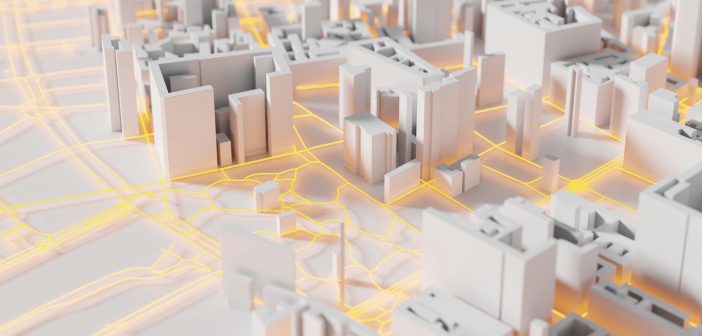Smart cities are getting even smarter about tourism
by Zohreen Ismail
Imagine a world where every person has an extra 125 hours a year available to spend as they please. According to a study by Juniper Research sponsored by Intel, it is suggested that smart cities have the potential to give back about 15 working days a year to citizens. So, what will people do with their extra time? Whether individuals decide to use their free time traveling or working, the hospitality and tourism industry will be impacted.
The effect tourism has on a city is invaluable through a boost to the city’s economy, number of jobs available, and the overall dollars spent on local attractions and restaurants. Tourism is growing and according to MasterCard’s 2014 Global Destination Cities Index, the amount spent by foreign travelers increased over the last five years. Smart cities are setting the bar high as a top destination spot and a goal of smart cities is to boost its social and environmental impact. Smart cities are designed to be data hubs – a place where real-time data is harnessed into being used for design services. Smart cities attract visitors and young talent resulting in each person finding benefits from the smart city specifically personalized to them. This aspect of a smart city is attracting considerable attention and tourists are adding these smart cities on their “Must Visit” lists due to the many benefits that draw them in.
Operations
Many tourists rely heavily on public transportation when visiting new places. Smart cities focus on using their developed infrastructure and data monitoring to ease traffic on roads and the efficiency of public transportation. Tourists then do not have to worry about their travel plans getting ruined due to heavy traffic or renting a car to visit local attractions.
One example of a city that uses smart technology to attract travelers is Barcelona. Juniper Research ranked Barcelona on their list of Top 20 Smart Cities. Barcelona restructured the bus system to make it easier for visitors to get around the city. With the new routes, tourists can travel between any two destination points directly or with only one transfer. The city also posted interactive bus stops equipped with USB ports. The bus stops inform travelers on real-time schedule of the buses. Barcelona also made their city friendly to tourists wanting to get around in a more energy efficient manner, through bicycles. They provide thousands of bicycles available to travelers throughout the city and bikers are able to check availability of the bikes through an app available on their smartphones.
Taking travel operations into consideration when creating a smart city is a top priority since experts are aware that many travelers take transit options into consideration when booking vacations.
Costs
The overall cost to operate a smart city is arguably reduced due to the city being able to operate at its optimum level in all aspects such as transportation, safety, energy, and management. Because the city is functioning at its peak, the overall cost to operate the city is lower than average. This results in accommodations and restaurants being more cost-effective for visitors.
Due to energy efficiency methods and cost-savings on utilizes, hotels and restaurants are able to save money in business operations and therefore provide a lower cost to visitors resulting in more customers and an overall financial gain.
Many Millennials take cost into consideration when picking their next travel destination, and smart cities are leading the way.
Cultural attractiveness
The cultural interaction that goes on within a smart city was found to be a strong factor of a smart city in a study published by ScienceDirect. Cities that scored high on cultural interaction were found to be attractive destinations. The number of tourists visiting these cities was also above average in comparison to cities that did not rank high in cultural attractiveness. The study also found that surrounding factors such as conferences and number of hotels also benefitted from these cities that are cultural hubs.
Follow the data
As tourists flood into smart cities for the unique and efficient experience of public transportation, local restaurants, and other hot spots, the data is generated and collected to further enhance the experience of future tourists and properly educate city officials on what areas to market. The city can then suggest itineraries to tourists based on the data collected from pervious visitors.
For example, Singapore has introduced a feature to assist visitors and even locals through the use of its app. Travelers can purchase a SIM card that grants access to content without incurring any additional international cellular data charges. The individual now has access to a plethora of local destinations and discounts to nearby attractions.
An unexpected benefit
With smart cities attracting more and more tourists and making the ease of traveling extremely attractive, smart cities are slowly becoming top picks for large conference gatherings resulting in a boost in the hotel and hospitality industry.
Companies and organizations are searching for cities that will provide their guests with access to relevant technology and ease in transportation to host their next big conference or event. Hoteliers are aware that incorporating technology inside of a hotel property draws in new guests, but incorporating technology within the layout of the city also attracts new guests to hotel properties.
Smart cities and smart hotels
As smart cities gear up to welcome more travelers, hotel owners will find themselves ahead of the race. Transforming your hotel into a smart hotel can create a revolutionary experience for the guest. A smart hotel will offer a unique experience that provides access to technology and provides an efficient method to getting things done. The goal of incorporating technology into anything is to make our lives better and easier. With smart cities come smart hotels and the goal is still the same – making things better and easier for the guest.
Smart cities and smart hotels are leading engines for boosting economic and social growth through the cash flow they bring in and the jobs they create. Smart cities are becoming magnets for tourists and business people, and the hospitality industry is directly affected by this unique movement. ■
PHOTO CREDIT: TOSTPHOTO/SHUTTERSTOCK.COM




